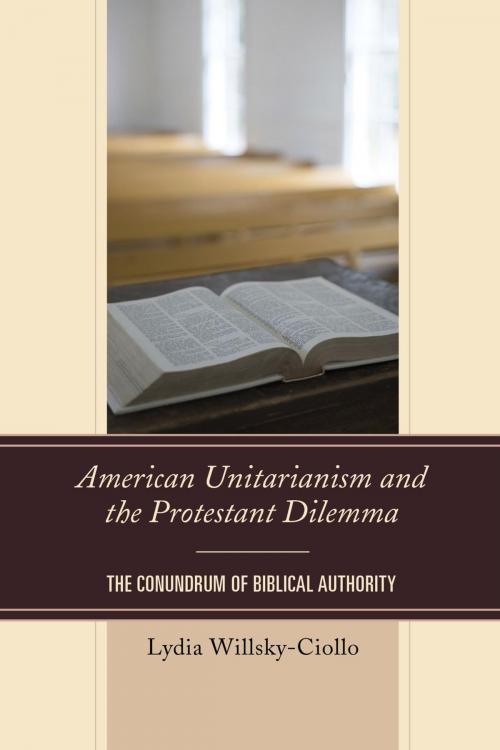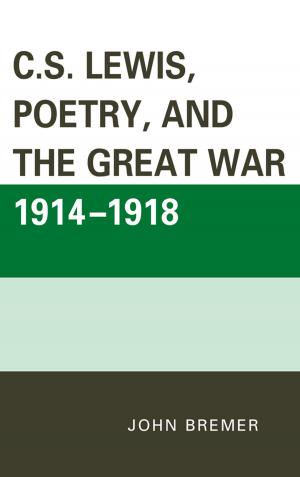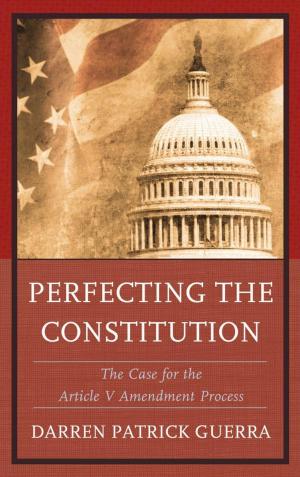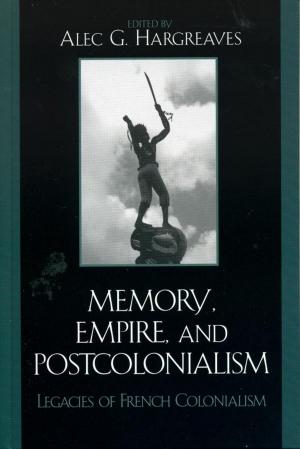American Unitarianism and the Protestant Dilemma
The Conundrum of Biblical Authority
Nonfiction, Religion & Spirituality, Christianity, Church, Church History, History, Americas, United States, 19th Century, General Christianity| Author: | Lydia Willsky-Ciollo | ISBN: | 9780739188934 |
| Publisher: | Lexington Books | Publication: | November 11, 2015 |
| Imprint: | Lexington Books | Language: | English |
| Author: | Lydia Willsky-Ciollo |
| ISBN: | 9780739188934 |
| Publisher: | Lexington Books |
| Publication: | November 11, 2015 |
| Imprint: | Lexington Books |
| Language: | English |
American Unitarians were not onlookers to the drama of Protestantism in the nineteenth century, but active participants in its central conundrum: biblical authority. Unitarians sought what other Protestants sought, which was to establish the Bible as the primary authority, only to find that the task was not so simple as they had hoped. This book revisits the story of nineteenth century American Unitarianism, proposing that Unitarianism was founded and shaped by the twin hopes of maintaining biblical authority and committing to total free inquiry. This story fits into the larger narrative of Protestantism, which, this book argues, has been defined by a deep devotion to the singular authority of the Bible (sola scriptura) and, conversely, a troubling ambivalence as to how such authority should function. How, in other words, can a book serve as a source of authority?
This work traces the greater narrative of biblical authority in Protestantism through the story of four main Unitarian figures: William Ellery Channing, Andrews Norton, Theodore Parker, and Frederic Henry Hedge. All four individuals played a central role, at different times, in shaping Unitarianism, and in determining how exactly religious authority functioned in their nascent denomination. Besides these central figures, the book goes both backward, examining the evolution of biblical authority from the late medieval period in Europe to the early nineteenth century in America, and forward, exploring the period of Unitarian experimentation of religious authority in the late nineteenth century. The book also brings the book firmly into the present, exploring how questions about the Bible and religious authority are being answered today by contemporary Unitarian Universalists. Overall, this book aims to bring the American Unitarians firmly back into the historical and historiographical conversation, not as outliers, but as religious people deeply committed to solving the Protestant dilemma of religious authority.
American Unitarians were not onlookers to the drama of Protestantism in the nineteenth century, but active participants in its central conundrum: biblical authority. Unitarians sought what other Protestants sought, which was to establish the Bible as the primary authority, only to find that the task was not so simple as they had hoped. This book revisits the story of nineteenth century American Unitarianism, proposing that Unitarianism was founded and shaped by the twin hopes of maintaining biblical authority and committing to total free inquiry. This story fits into the larger narrative of Protestantism, which, this book argues, has been defined by a deep devotion to the singular authority of the Bible (sola scriptura) and, conversely, a troubling ambivalence as to how such authority should function. How, in other words, can a book serve as a source of authority?
This work traces the greater narrative of biblical authority in Protestantism through the story of four main Unitarian figures: William Ellery Channing, Andrews Norton, Theodore Parker, and Frederic Henry Hedge. All four individuals played a central role, at different times, in shaping Unitarianism, and in determining how exactly religious authority functioned in their nascent denomination. Besides these central figures, the book goes both backward, examining the evolution of biblical authority from the late medieval period in Europe to the early nineteenth century in America, and forward, exploring the period of Unitarian experimentation of religious authority in the late nineteenth century. The book also brings the book firmly into the present, exploring how questions about the Bible and religious authority are being answered today by contemporary Unitarian Universalists. Overall, this book aims to bring the American Unitarians firmly back into the historical and historiographical conversation, not as outliers, but as religious people deeply committed to solving the Protestant dilemma of religious authority.















